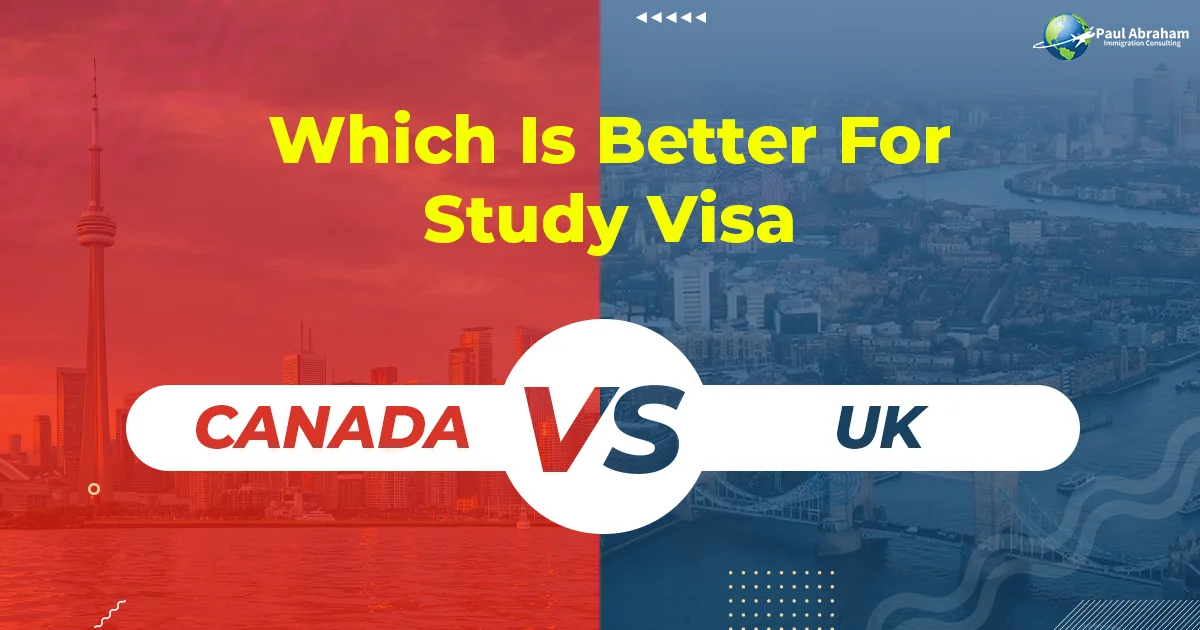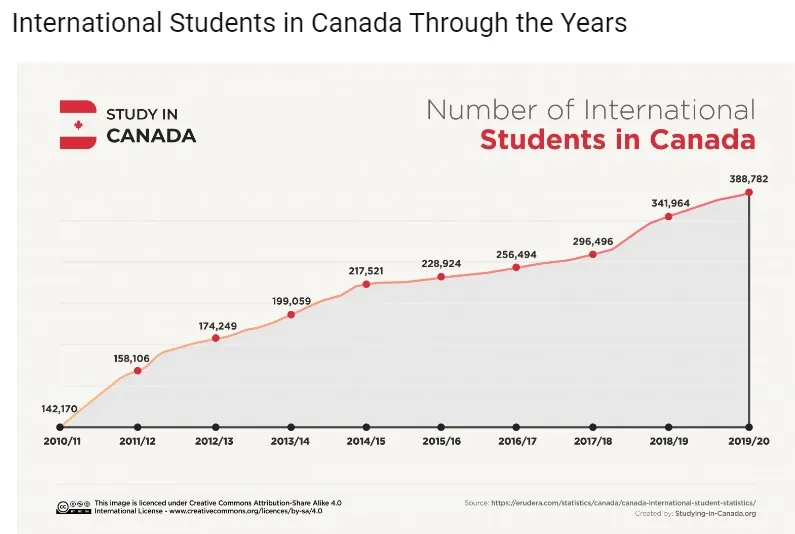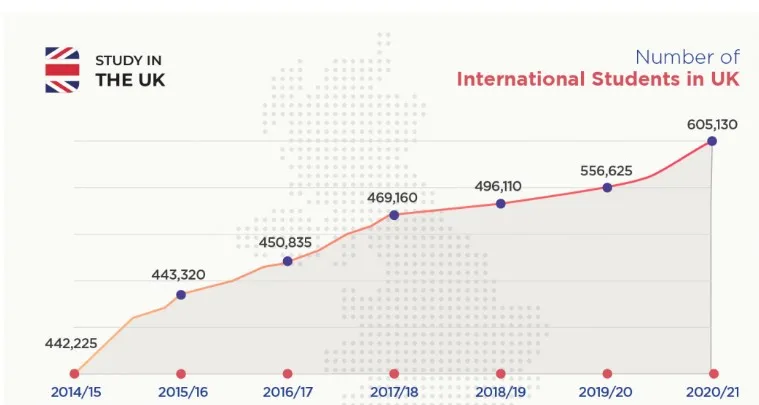Canada or UK | Which Is Better For Study Visa

Last Updated On : May 20 , 2024
The choice between Canada and the UK will depend on factors such as tuition fees, scholarship opportunities, quality of education, and post-graduation work options. Both countries have reputable institutions, but Canada is known for its more lenient post-study work permits, making it an attractive choice.
Study Visa Requirement : Canada vs UK
To apply for a Canadian study visa, you must meet the following requirements:
|
Canada |
UK |
|
|
Cost of Studying in UK vs Canada
|
Programs |
UK |
Canada |
|
Graduation Programs |
£9,250 to £38,000 annually |
$5,500 to $50,000 annually |
|
Postgrads Programs |
£15,000 to £20,000 annually |
$8,350 to $27,820 annually |
How Many Students are Studying in Canada vs UK
Both Canada and the UK are excellent destinations for international students, offering world-class education, vibrant cities, and diverse cultures. The best place for you to study will depend on your individual priorities and preferences.

Source: Canada International Student Statistics
Canada offers international students to earn while studying in Canada, and there are different programs to work in Canada on a study permit, including work on campus, Off-campus, and work as a co-op student or intern.
Canada has become a major destination for international students, with over 1 million currently enrolled and attracted by quality education and a welcoming environment.

Source: International Student Statistics in UK
The UK boasts a large international student population as well, reaching around 0.68 million.
Finding An Immigration Expert: IRCC vs UKVI
Becoming more knowledgeable about the PR process can give you the confidence to apply independently, but do you still need to consult an immigration expert?
In obtaining permanent residency (PR) in Canada or the UK, consulting with the respective immigration authorities is crucial.
For Canada, you can consult an Immigration, Refugees and Citizenship Canada (IRCC), while in the UK you have to consult with UK Visas and Immigration (UKVI).
Which Country is Better For Short Term Courses: Canada or UK
Both countries provide short term courses for international students that address industry skill gaps and complete labor market demands. The government often partners with industry associations and employers to develop curriculum and ensure training programs
|
Canada |
UK |
|
|
|
|
UK Vs Canadian Education System
The education systems in the UK and Canada differ in their approach. The UK system focuses on a traditional and structured curriculum with national exams like GCSEs and A-Levels, while Canada offers more flexibility and allows for provincial variations. Canada also emphasizes a broader range of electives and aims to develop well-rounded individuals.
Top 5 Universities UK vs Canada
|
UK |
Canada |
|
University of Oxford |
University of Toronto |
|
University of Cambridge |
McGill University |
|
Imperial College London |
University of British Columbia (UBC) |
|
University College London (UCL) |
University of Alberta |
|
London School of Economics and Political Science (LSE) |
McMaster University |
Dual Degree Program: UK vs Canada
Both Canada and the UK allow international students to participate in dual degree programs, which can make them more competitive candidates in the job market.
Certain Canadian universities permit international students to pursue multiple educational programs simultaneously through partnerships with different universities.
- University of Toronto (UofT) offers some programs with various partner universities in Europe and Asia.
- McGill University offers (MBA)/Master of Science (MSc) in Finance with Fudan University in China.
Like Canada, the UK universities offer several programs with partner universities in the US and Australia.
- Pursuing a Master of Philosophy (MPhil) in Economics from the University of Oxford supports a parallel program from Columbia University in the US.
- Pursuing Master of Science (MSc) in Neuroscience from University College London (UCL) with the University of Melbourne in Australia.
Conclusion:
Based on the data provided, it cannot be concluded whether Canada is better than the UK or vice versa, as each country has its strengths. Factors such as tuition fees, career opportunities, university scope, student population, and educational fields of interest have been considered to help you make a well-informed decision.
If you need assistance with applying for a Canada study visa, our immigration consultant can offer guidance.
